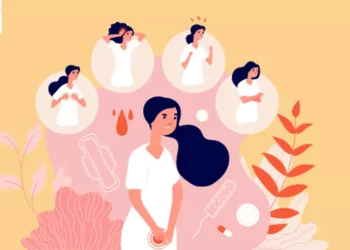Jennifer Davis, residing in Maryland, vividly recalls the emotional turmoil she faced after the birth of her daughter 11 years ago. Amidst the elation of becoming a mother, Davis found herself grappling with mood swings, loneliness, and profound sadness. “It was mostly anxiety and intrusive thoughts,” she shared, reflecting on her struggle to articulate her inner turmoil. “Not being able to just function normally after coming home with her. And I didn’t have the words to explain or describe what I was feeling.”
Seven years later, Davis experienced a resurgence of these emotions following the birth of her son. Despite having support networks in place, she chose to suffer in silence. “I had support systems, but I didn’t talk to anyone,” Davis, now 40, confided to WTOP. “I was embarrassed, and I didn’t want to stress anyone.”
It wasn’t until years later, through an online search, that Davis came to realize she had been battling postpartum mental health disorders after both of her children’s births. This revelation led her to the Postpartum Support International (PSI) website, a nonprofit organization offering a range of services tailored to new mothers, including individual peer mentors, an extensive directory of physicians, and monthly support groups.
Davis firmly believes that access to such information could have transformed her experience as a new parent. “We’re trying to work through people not going through that because perinatal mental health disorders are so common,” she emphasized. “There was a whole community of individuals who understood. If I had known that it would have been a game changer for me.”
Today, Davis is actively involved with PSI as a chapter program director.
In collaboration with national and international maternal support organizations, PSI is commemorating World Maternal Mental Health Day on Wednesday. This initiative is particularly timely as May also marks National Mental Health Month.
The primary objective is to extend support to as many women as possible, asserts Wendy Davis, the executive director of PSI. “The reason that we don’t reach out for help with any of the perinatal mental health disorders is that we don’t realize that’s what we’re going through,” she explained. “We just think we’re failing. You’re afraid that people will think badly of you.”
According to PSI, over 800,000 women experience perinatal mental health disorders—including anxiety, obsessive-compulsive disorder, post-traumatic stress disorder, and psychosis—each year, yet only about 25% of them seek treatment. Moreover, one in 10 men grapples with depression or anxiety linked to the perinatal period, Wendy Davis highlighted.
Amidst the challenges of adjusting to the demands of caring for a newborn—sleep deprivation, exhaustion, and common parental struggles—many individuals find it difficult to discern between normal feelings and those that warrant intervention.
“I would tell them, ‘You’re doing an amazing job right now. And just know that you can reach out and talk to someone,'” Wendy Davis reassured. “Just know that you are doing an amazing job.”























